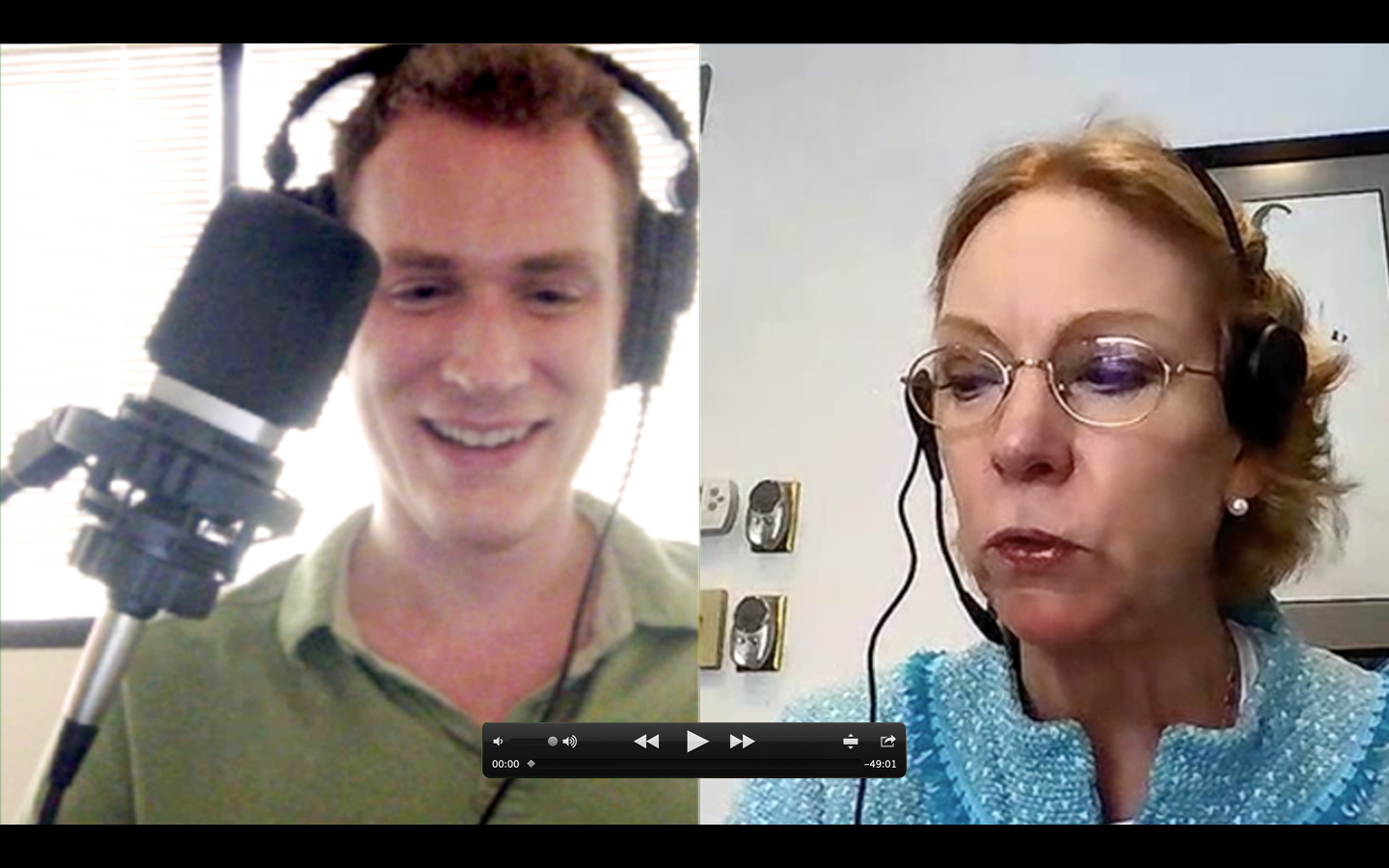Podcast: Play in new window | Download | Embed
Subscribe: Apple Podcasts | Email | RSS
Merrie Spaeth is the Founder and President of Spaeth Communications. She has a deep experience in communications strategy and media consulting which includes serving as the Director of Media Relations for President Reagan. She’s a frequent speaker on Communications Theory, and university teacher in Dallas, Texas.

Passion
1. Can you share a bit about what keeps you passionate about Mastering Words in the Media?
Merrie keeps passionate about her work through the wonderful client opportunities that stretch what she does at every level. Inventing things, or looking at things in a new way, to help transform their clients’ businesses is one of the most exciting things Merrie feels anyone can do.
2. Do you have any influential mantras or quotes to keep you inspired in this work?
“Love it, even if you hate it.” turned out to be a great attitude for Merrie.
Past
3.Background story that led you into this work specifically.
Merrie Spaeth is the Founder and President of Spaeth Communications. She has a deep experience in communications strategy and media consulting which includes serving as the Director of Media Relations for President Reagan. She’s a frequent speaker on Communications Theory, and university teacher in Dallas, Texas.
4. Any regrets? This is a “tough question”, fascinating to hear how smoothly Merrie handles it.
Merrie recommends being optimistic, regretting things is looking backwards. Go into things thinking positively, which is a much healthier than thinking negatively.
Present / Insights
5. What advice would you give to someone just getting started in the media?
Minimal best training for public communicators Foundation of communication is being a good writer. Whatever business you think you’re in, you’re in the business of communication. We expect you to manage communication, we expect you to understand that communication is a strategic business tool, and a leadership skill. 1. Start writing as early as you can and write a lot. 2. Read. Read good writing Reading Homework: * A couple of the federalist papers * Some of the founding fathers documents Lincoln’s inaugural speeches. Read aloud the Gettysburg Address. 5.1. I asked you a similar question at her previous seminar, here are my unedited notes. I asked:
“What’s the minimal best training for public communicators?”
Merrie’s response:
- Have a Point Of View
- De-compartmentalize
- All audiences need to hear same message
- courage
- organize
- Rehearse
(If you need to show that need then show horrible examples such as recent bp press management) Stop talking about what you need, talk about what you do for your communities and customers. Tell stories! Stories are much better saletools than anything else. Humor is a leadership tool, important thing for people to build into their skillsets as they rise up in their career. We’re talking about self deprecating humor so people know that you don’t take yourself so seriously. Poke fun at yourself, make them smile,lighten their load, and show that you’re a real human being.
Guidance:
- People don’t remember much of what you tell them.
- We pick up each other’s words. When you repeat and deny a negative word, because that becomes the sound bite.
- You have to go into a situation with knowing your good words, and what are the negative words. Have a very clear idea of your anchor words.
Some challenges that come up over and over again:
- How you listen to a question, particularly from reporter is helpful.
- Rather than taking the position of having to answer a question from a reporter, Merrie encourages interviewees to think of them of as responding to the question.
- The role you assign yourself tends to have a significant influence on how you communicate, particularly with a reporter.
- There’s a tendency to accept the words, the parameters and topics of the question instead of asking who is my audience and why am I doing this.
- You want to acknowledge that you heard a question.
- A common question is a framing question.
- Where you start in an interview is very important. Any short response that conveys that you heard the question is accepted by the listener, and puts you back in charge.
- Repeating and denying a negative is the most common mistake in the media.
Future
- In terms of media, the wave of the future has increased multimedia, multi-channel, immediacy, and engagement.
- Corporations need to understand the huge implications of how they think of interacting with their audiences, particularly with their customers and employees.
- Communication needs to be democratized
- You need to engage the audience along all these different channels – otherwise they will engage themselves elsewhere.
- Engage, compete for attention, invent your own media
- Involve your own audiences, solicit their stories.
Learn more about Merrie at http://spaethcom.com/
- Check out Merrie’s book – You Don’t Say (amazon affiliate link with love)
- The Bimbo Memo has stories submitted by readers, so submit your stories!

